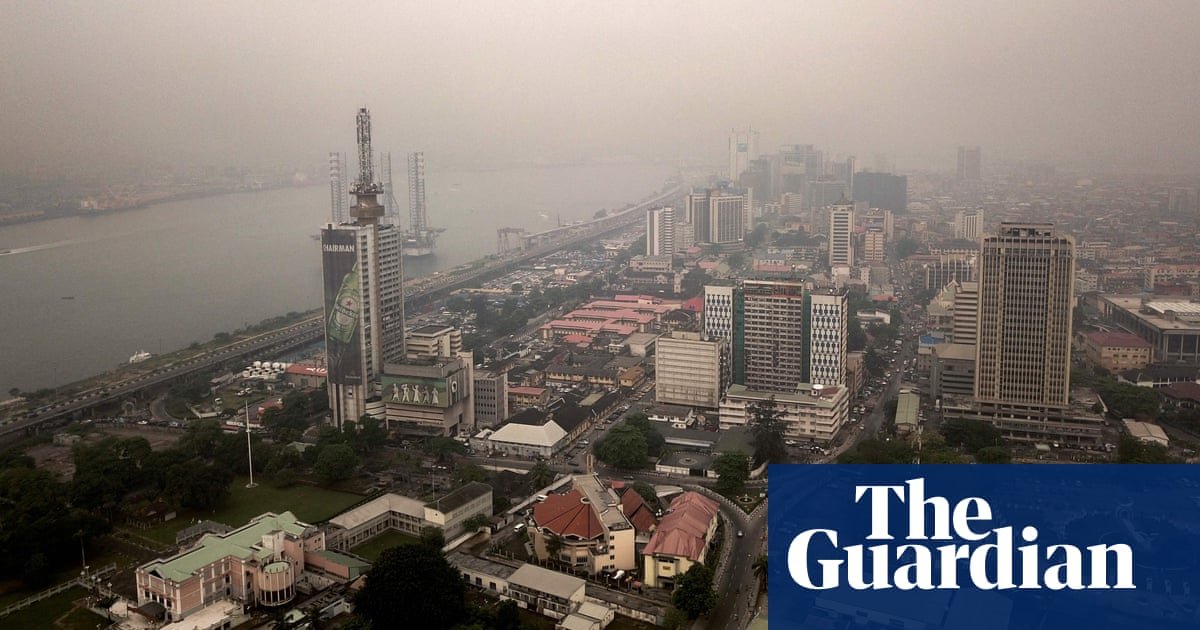Nearly 2,000 children under five are dying every day from air pollution, which has overtaken poor sanitation and a lack of clean water to become the second biggest health risk factor for young children around the world.
More than 8 million deaths, of children and adults, were caused by air pollution in 2021, according to a new study from the Health Effects Institute (HEI), as both outdoor and indoor pollution continue to take an increasing toll on health.
Dirty air is now the second biggest killer globally, overtaking tobacco use, and second only to high blood pressure, as a risk factor for death among the general population. Among children under five, air pollution is second only to malnutrition as a risk factor in mortality.
This year’s State of Global Air report, published by the HEI since 2017, and produced this year in partnership with Unicef, also shows that children in poor countries are suffering some of the worst impacts, with the death rate linked to air pollution in children under five 100 times higher in most of Africa than it is in high income countries.
Pallavi Pant, the lead author of the report and head of global health at HEI, pointed to the vast inequalities that the report has uncovered. “Far too much of the burden [is] borne by young children, older populations, and low and middle income countries,” she said.
Tiny particles called PM2.5 – meaning they are smaller than 2.5 micrometres in diameter – are to blame for more than 90% of global air pollution deaths, the report found. PM2.5 particles can enter the bloodstream and have been found to affect organs throughout the body. They have been found to be associated not only with lung disease but heart disease, stroke, diabetes, dementia and miscarriage.
The report showed how pervasive and damaging the prevalence of PM2.5 pollution has become, finding that the presence of elevated levels of the fine particles was now “the most consistent and accurate predictor of poor health outcomes” around the world.
Kitty van der Heijden, the deputy executive director of Unicef, said: “Our inaction is having profound effects on the next generation, with lifelong health and wellbeing impacts. The global urgency is undeniable. It is imperative that governments and businesses consider these estimates and locally available data and use it to inform meaningful, child-focused action to reduce air pollution and protect children’s health.”
The impacts of the climate crisis are also worsening air quality, according to the HEI. The report found that “as droughts become more severe and prolonged, and lands grow ever drier, wildfires ravage once-thriving forests and dust storms impact vast plains, filling the air with particles that linger for long periods of time.”
Higher temperatures in summer can also worsen the impacts of airborne pollutants such as nitrogen oxides, which at elevated temperatures can turn more readily into ozone, an irritant gas when breathed in. Long-term exposure to ozone contributed to nearly half a million deaths in 2021, the report found.
Tackling air pollution could also have beneficial impacts on the climate. About half a million of the deaths of children in 2021 were linked to dirty air indoors, mainly the result of cooking with dirty fuels, including biomass, charcoal, paraffin and coal. Switching to cleaner fuels, such as solar cookstoves, could vastly reduce PM2.5 emissions, as well as emissions of carbon dioxide.
About 2.3 billion people around the world lack access to clean cooking fuels. The International Energy Agency estimates that about $4bn a year is needed between now and 2030 to solve the problem in sub-Saharan Africa alone. It held a global summit last month that raised $2.2bn for projects to help move people across the continent to cleaner methods.
Fatih Birol, the executive director of the IEA, said the problem needed to be seen as a global priority for governments, with impacts on health, the climate and national economies, as well as gender equality, because women and girls are often given the task of finding firewood. “This is an issue that has been ignored for too long,” he said.
The State of Global Air report used data from the Global Burden of Disease study from 2021, covering more than 200 countries and territories around the world. Previous reports have found that nearly every person breathes unhealthy levels of air pollution each day, and that half a million babies were being killed each year by filthy air.

